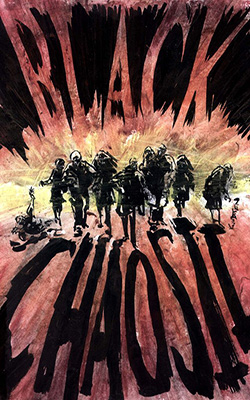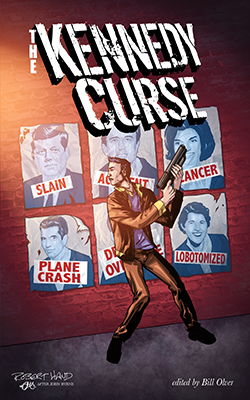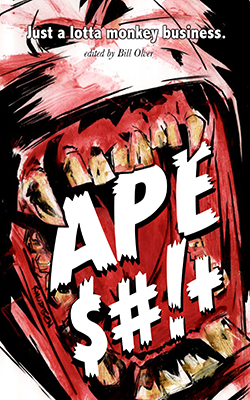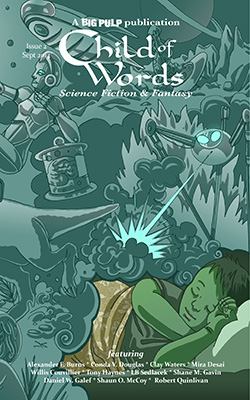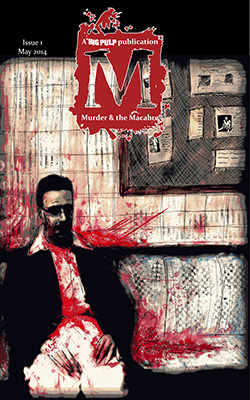The idea came to me the same way any breakthrough comes to a man of genius. I was drunk, and I was trying to get laid.
Of course, I was expecting it. I had worked out the formula for creativity as a pimple-faced teenager. Home alone, inebriated, and pining away for Elsie Wycoski, my teenage angst became numbers. Turns out the key to creativity is a very simple algebraic equation. It looks like this:
E = mc2
Where:m = Your level of sexual desperation
c = Your level of inebriation
E = Your level of creativity
In other words, the more desperate and drunk you are, the harder your brain works to come up with witty, clever things to say or do in order to get the girl sitting next to you back to your place and in the sack.
Okay, okay, I know some of you out there are screaming plagiarism and theft of intellectual property rights. Well, for those of you on the left side of the bell curve, I’m perfectly aware of Einstein’s frequently misunderstood theory of energy and matter. But Einstein’s equation is very different. His looks like this:
E = mc2
Or, as Einstein hypothesized, energy equals the mass of an object times the speed of light squared. What a bunch of phooey!
Do you see the difference? Mine unlocks a mystery of the universe. His is a nebulous collision of numbers and words. Its only claim to fame is that it unwittingly inspired my own formula.
It’s sad, actually. Having spent some time analyzing Einstein’s scientific and personal writings, I’m pretty sure he had no idea how close he was to coming up with a really great idea and achieving intellectual immortality. If he’d had any understanding of the real meaning and application of his theory, he might have been more successful in his exploration of perpetual motion and cold fusion.
My guess is he got laid too much.
You see, once you understand the basic principals of E=mc2, understanding condensed matter nuclear science is obvious. The secret to creating tremendous amounts of energy from matter without an atomic explosion is liquor and longing. It’s a scientific fact that proves itself every Friday night. The drunker you get, the less likely you are to actually get laid. That, of course, results in increased levels of sexual desperation, which leads to more drinking. The unavoidable conclusion is that the two elements naturally and effortlessly fuel each other in a perpetual cycle. As a result, there is a tremendous explosion of energy—creative energy.
Now that we all have a fundamental understanding of how the universe works, it should come as no surprise that as one of the world’s leading minds in the field of temporal physics and macrobiotic biochemical artificial intelligence, I seek out beer and rejection every chance I get.
Last Friday was no different.
Looking around the table, I saw the usual circle of faces. There were science geeks, neo-deconstructionists, wannabe poets, militant lesbians, flamboyant fags, and a small collection of students on the seven-year plan. All of us socially awkward. All of us flaunting our uniqueness. All of us sharing a painful longing to fit in.
These round table discussions were our weekly haven. Every Friday we’d make the pilgrimage to the Blue Moon—the dirtiest bar with the cheapest drinks within walking distance of the college campus. We’d saunter in, grab the big, beer-stained table in the corner window and talk and drink and try to get lucky.
But I was only talking to one of them.
Her name was Fiona Franklin, and she had just been released from prison. Without any real malice or regret, she had shot her boyfriend in the face with a 12-gauge shotgun. She tells the story plain and simple. They were fighting. He was cranked up on smack. He handed her the gun and dared her to shoot. She did.
She was beautifully broken, and I wanted her.
Of course, she was a Women’s Studies majoring comfortable shoes, and I knew I didn’t stand a chance. I had unsuccessfully played out the same scenario at least a hundred times with the same number of women. That only encouraged me.
I leaned forward, speaking loud enough for everyone to hear, but secretly hoping with every word that some idea or phrase would spark a connection with the woman sitting next to me.
“The secret to time travel lies in molecular memory,” I explained. “You see, every atom in existence has its own history. It has seen and done any number of incredible things since the beginning of time, and those experiences have been implanted in the unconscious ‘consciousnesses’ of these building blocks of the universe.”
A few heads nodded, pretending to understand. The faces on the rest were blank.
Sarah, our heavily pierced angry poet, thought she got it, but she didn’t. “So, what you’re saying is that atom bombs are good because they release knowledge in the world?” she asked.
“Interesting thought, but no,” I sighed, and tried again.
“Okay, everyone has heard of the collective consciousness,” I explained. “Well, even though it sounds like a lot of psychological mumbo jumbo, it isn’t. In fact, it’s not spiritual or esoteric in any way. The collective consciousness is simply the knowledge of all time stored in the atoms and matter we see, touch and smell every day, and every now and then people accidentally tap into it. You’ve heard of people having déjà vu or psychic visions? These people are unwittingly accessing the memories of the matter surrounding them.”
I heard a guffaw. Myron, our resident suicidal psych major, was offended. “Please, don’t bring Jung into your demented interpretation of the universe,” he pleaded. “I’m pretty sure that whatever you’re getting at is deeply offensive to the Jungian gestalt.”
Another deep sigh. A swig of beer. I decided to speak very slowly.
“Did you ever wish you were a fly on the wall at some great historic event?” I asked. “Well, imagine the fly is the wall, and that wall is a recording device. Everything that has happened to that wall is constantly being recorded, and all we need to do is discover a way to play that recording back in a way that the human brain can understand it.”
Third time’s the charm.
Fiona nodded and her long black hair bounced provocatively on her shoulders. She got it. “I understand what you’re saying, Jack,” she said. “Imagine being able to know exactly what happened at Area 51 just by scooping up a handful of New Mexico sand and running it through a machine, or imagine the information you could get from a murder victim’s clothes… But what does that have to do with time travel?”
Before I could answer, the peanut gallery chimed in.
John looked horrified. After two years in seminary, he had tossed out his bible to find salvation in Soren Kierkegard, Jean Paul Sartre and other thinkers who were brave enough to use their real names. He was the group’s self-proclaimed moral compass.
“Forget Area 51,” he blurted. “A discovery like that would turn the world upside down. Do we really want to know the truth about Jesus Christ?”
“Or Kennedy’s assassination?” Myron interjected.
“And what about the ‘poor’ husband who is so careful to shower off the perfume and remove the lipstick from his zipper only to come home to a wife with the ultimate lie detector?” Sarah laughed.
Fiona frowned, scrunching her forehead into delicate thought wrinkles. “Are we better off living in a world based on truth or is it to our advantage to have a chosen few fabricate reality for us,” she said.
I agreed. “It really is just that simple,” I said. “Science is like religion. We live in a binary world. At its root, there are only two options—truth or lies, good or bad. After that, the priests and the prophets complicate everything.”
“The prophets of science?” John asked.
“People like you,” I said and smiled. “People who try to make things more complex than they really are so they can sound smart and feel important.”
The crowd chuckled. John looked to see if I was really insulting him. I was.
“Regardless of the implications, the science is incontrovertible,” I continued. “The answers are there. We just have to find a way to get at them.”
I paused for effect. The amateur think tank was listening with practiced skepticism.
“I have found that way.”
Earlier in the semester, using a hefty investment from the Adult Entertainment industry interested in creating the first truly immersive virtual reality experience, I had developed the breakthrough technology that translated molecular memories into electro-chemical impulses that could be input directly into the human brain. Using an artifact or any object from a specific region or time period, my system would scan the individual atoms, “transport” my total awareness to that period of time, and allow me to interact with it.
It sounds easy, but it wasn’t. That last bit was the tricky part. The first episodes of virtual time travel where limited to panoramic observations of history, but the experience only included general sights, sounds and smells of the moment in time and space being replayed. Great for fact finding, but not very entertaining.
Now, don’t get me wrong. That was pretty incredible, but I wanted more. So, I set out to generate the comprehensive artificial intelligence program that would allow me to interact directly with the electro-chemical impulses being poured into my brain. This new experience would include all of the senses, allowing me to touch the world in my head, speak with historical figures, and change history—at least in the virtual world. It was the best of all possible scenarios—you could travel in time without having to worry about destroying the space-time continuum or, even worse, becoming your own father.
To be perfectly honest, when I had finally hammered out the last algorithm and attached the last wire, I amazed even myself.
But the investors were not impressed. At the private unveiling of my masterpiece, they were irate. While they liked the idea that their customers could go back through time and chase down skirt from any era, they objected to the process.
“Look at all this crap,” one pin-striped executive asserted, pointing to the cranial interface and the maze of wires and gadgets that made up the system. “Where does the penis go? Climbing into this thing is like climbing into an electric chair. I can’t market this. It’s not sexy at all.”
He frowned at his colleagues, shaking his head. “Why would anyone buy this death trap when they can pick up a battery operated vagina at their local smut shop for $39.99?” he asked.
What could I do? They held the purse strings, so I streamlined the packaging to meet the unique needs of my clients. Three months later, the porn execs were thrilled. It was sleek and sexy, and they couldn’t wait to get the Orgasmatron on the market.
Of course, when I shared my story at the Blue Moon, nobody believed me. They thought I was just another one of them. Lots of talk, a few published papers in obscure academic journals, and no action.
“Your Nobel Prize discovery raises a very interesting question,” John said, mockingly. “If you could travel through time and have sex with any person alive or dead, who would it be?”
John was famous for his lists, and I was thankful. It gave me an opportunity to pour another beer, sit back, and evaluate the arena.
As usual, John answered his own question first. He was a pompous ass, and not very original. “Without a doubt, it would have to be Norma Jean,” he said with a far off look in his eye. “Marilyn Monroe. Of course, it would have to be in her younger years before Einstein and Joe Dimaggio. I’m not into sloppy seconds.”
The list that followed was equally unimaginative. The girls and one of the guys were hung up on Errol Flynn, Brad Pitt and Fabio. The guys mostly agreed with John, but added their own twists by limiting it to a specific movie character or hairstyle. I couldn’t bring myself to admit that I’d already made the attempt many times. Turns out Marilyn was not as easy as I dreamed she’d be.
The discussion was getting tired, and I knew I was going to have to bring it back to life. Luckily, Fiona came to the rescue.
“I’d fuck Jesus Christ,” she said. “He’s certainly screwed all of us, and I wouldn’t mind returning the favor.”
Fiona had crossed a line. John’s jaw dropped, and his face went red. The table was stunned to silence. Despite the common belief that we were all rebel thinkers fighting to transform the world, the truth was most of us were just middle class white kids executing the comfortable legacy of our middle class heritage.
I jumped at the opportunity to defend her. “I understand what you mean. Who can resist a scraggly guy in sandals, and who knows what little tricks of the trade he picked up from Mary Magdalene? But for me, the son of God can take a number. If I could travel through time to sleep with anyone…”
I paused again, draining my beer for dramatic effect.
“I would travel five years into the future and have sex with myself.”
And that, my friends, was my moment of brilliance.
Fiona laughed. Actually, everyone was laughing, but the only one that mattered was the long-haired, murdering lesbian sitting next to me.
“No, I’m serious,” I explained, and I was serious. “Think of it. Who knows how to please me better than myself? Who knows my deepest fantasies and desires? Who else…”
I absent-mindedly put my hand on Fiona’s arm thinking there was a moment of connection between us. She immediately withdrew it and looked away uncomfortably.
The blatant rejection stung.
“Who else would be able to stand you with your clothes off,” John snorted. “Leave it to Jack to use the greatest scientific breakthrough of all time to come up with a new way to masturbate.”
Pissed on and insulted in less than a second, I let the barb go unanswered. My mind was now a whirlwind of numbers and theories. If my virtual time-travel machine could analyze molecular memory and extrapolate realistic outcomes from random factors inserted into the past, why couldn’t it draw on its vast and ever-growing knowledge of the human experience to accurately project settings and scenarios set in the future? Why couldn’t I travel five years into the future and have sex with myself?
Surely, that would be an adventure worth sharing at some future Blue Moon round table discussion.
And I knew I was a sure thing.
I spent the next three days working around the clock. I fed as much of my life into the system as possible. Childhood photos (not that the pictures mattered, just the atoms they contained), important memorabilia, journals, clothes, anything I could find to build the database of me. At the same time, I fine-tuned the long strings of numbers and equations that made up the soul of my system’s artificial intelligence.
Then I was ready.
I pulled back the stainless steel lid to the sensory deprivation tank that allowed my mind to experience sensations without the confusion of conflicting messages from my real body. I undressed, stepped in and carefully connected the condom electrode that allowed the system to communicate directly with my brain. Once the primary interface was firmly attached, I laid down, closed the lid and waited for the familiar nausea to wash over me.
First blackness. Then a frenetic race of jumbled pictures and sensations. It was like a DVD speeding forward to the good part of the movie. Then I was standing in front of a dark green apartment door in a posh apartment building or hotel. Taking a deep breath, beginning to feel a little excited, I knocked.
“Hello?” a voice called out. “Come on in. The door is open.”
Thank God I had remembered to add clothing to the program.
I opened the door and stepped in. Nothing surprised me. It was a perfect mess, and I felt at home immediately. Light poured in from a wall of windows onto tables stacked with magazines, books and unrecognizable gadgets. An unmade bed was in the back left corner. The kitchen to the right was cluttered with empty beer bottles and Chinese take-out cartons. An oversized couch and armchair framed a humungous coffee table in the center. Everything in the giant studio looked half-read or half-completed.
A door on the opposite side of the room opened, and there I was.
I was coming out of the bathroom wet from the shower, wearing a luxuriously soft and clean bathrobe, leaving wet footprints on the plush white carpet. I looked at myself with just a little wonder. I was a tad older and a tad heavier, but I looked good.
I smiled. If this is my future, I thought, I’m okay with that.
However, the other me was not smiling. His forehead was creased with sudden hard thought, and his lips were twisted in reproach. Clearly, he recognized who I was, and he was not happy about it.
“What in the hell have I done?” he asked.
He surprised me. It wasn’t quite the reception I was looking for, but I decided to roll with it. “That answers my first question,” I said, walking into the room, picking up a magazine from the coffee table. No matter how hard I concentrated, the words would not come into focus. “I was wondering if you would be expecting me.”
He looked me up and down, shaking his head. I saw realization wash across his face. Then, with a soft sigh, he went to the kitchen, pulled two beers out of the fridge and handed one to me.
“My guess is that you programmed the Orgasmatron with as much of your past as possible in order to generate my existence and visit me here today,” he said. “Since you had not yet traveled to the future, none of the adventure you’re currently experiencing was used to build this virtual world. All of this is original. It’s happening to both of us for the first time.”
Damn I was smart.
“There’s a first time for everything,” I added.
“That’s the hope that keeps me going.”
Without shame or hesitation, he threw his robe on the bed and pulled a familiar pair of flannel pajama pants off the back of the couch. He put them on just like me—one leg at a time, but he was very different. His eyes were on fire. I could feel the brilliance churning beneath the surface of the conversation. He was alive with a spark of creativity bursting to get out, and he moved with the confidence of a man who is used to transforming fantastic dreams into concrete reality.
I watched in awe as he paced the room.
I was glad the beer and liquor had not claimed too many of my brain cells—at least too many of the important ones. I downed half the bottle of imported ale, relishing the accuracy of the virtual taste. Virtual drinking was, in fact, one of my favorite aspects of time travel. I could drink an ocean of beer, get completely blotto, and then pop back to reality to skip the vomiting, hangover and calories.
I finished the bottle.
“So, you don’t know why I’m here?” I asked.
“I imagine it’s because your life is a mess and you’re looking for guidance,” he answered, handing me his unfinished beer. “Here, let me make it simple for you. Embrace the mess.”
He paused, looking for my reaction. “Everything that’s tormenting you now becomes the foundation for your success,” he explained. “Right now, you feel like you don’t fit in. No one understands you, and the people who pretend to understand make you want to punch them in the face. But take it from me, the depression, the angst, the desperation, they all lead to something much greater than you can possibly imagine.”
I shook my head, wondering how to forward my agenda. He had no clue what was going on.
“Actually, that’s not the reason at all,” I said, taking a seat on the couch. “I’m here because I think there’s a possibility that the two of us working together can take a plunge into completely uncharted territory. I was hoping you could help me out with a little experiment.”
He stopped in his tracks and tilted his head. I could see the question in his eyes. Was I thinking something that he had never thought of before?
“Okay, I’m listening.”
“Human relationships are like the fundamental macrobiotic biochemical principals that drive the Orgasmatron,” I explained. “As you know, the Orgasmatron works best if the input consists of raw molecular matter from the exact time, place and person you want to create or recreate.”
He nodded. “Yes,” he said. “The closer the match, the easier it is for the system to generate the reality. That way the system doesn’t have to sift through eons of irrelevant history or splice together recorded molecular memories from multiple items to create a cohesive target destination. Plain and simple, it’s a lot less work.”
I smiled. He understood. “I think the same thing could be said about people,” I added. “The idea that opposites attract is baloney. The more different people are, the harder it is to synchronize their interface as human beings. With so little tying them together, they spend all of their time trying to fill the gaps between their realities.”
“And, of course,” he said, “most people fill those gaps with arguments or futile efforts to make the other person more like them. As a result, the compound binding the two people is based on negative energy, which ultimately leads to the devastating destruction of the bond or the relationship.”
“Exactly,” I said. I was getting excited. He was following my line of thought exactly. “On the other hand, the more alike two people are, the more organic and natural the bond between them is. This solid connection reinforced by the laws of nature is really the only possible foundation for a truly intimate and lasting joining of human souls.”
The other me laughed out loud.
“Okay, wait, let me guess,” he said, still chuckling under his breath. “You created me, this time, this place … you went to all this work so you could have sex with me. You think that you and I are organic matches. You think that because you and I are the same person and therefore so much alike, you’ll finally find the intimacy you’re looking for.”
I looked him in the eye with hopeful anticipation. He shook his head.
“Now I need a beer,” he said.
He walked to the kitchen, grabbed a bottle and drank it completely before sitting down on the couch next to me.
“I vaguely remember entertaining that thought about five years ago,” he admitted. “I blurted it out at some bar to get a reaction out of some chick. I even remember working out the mathematics and temporal theories to support it. Fortunately, I was smart enough not to follow through with it.”
He gave me a patronizing smile, lounged back on the couch and laughed again. “Sorry to disappoint you, brother,” he said. “It just ain’t gonna happen.”
“But…”
“Oh, I know what you were thinking. You were tired of being alone. Tired of rejection. Tired of the shallow relief you give yourself on a regular basis. So, you thought of this new twist.”
He gestured around the room and shrugged. “Let me ask you this, why did you travel into the future instead of the past to live out this Narcissistic fantasy?”
It was a good question, and I didn’t know the answer. Traveling into the past would have been so much easier. The system was already in place. There was no need for any additional science or programming. Why did I go to so much trouble for this encounter with the future me?
Luckily, it was a rhetorical question. “I’ll tell you why,” he continued, holding my attention with his gaze. “When you think of yourself in the future, there’s a natural appeal. You assumed I would be a better version of yourself. Smarter. More successful. More together. You want to explore the mystery of yourself. You want to know that person. You want to be that person.”
I nodded. He was right.
“But the truth is that I’m sitting here in my virtual reality looking at me from five years ago. And to tell you the truth, I’m a little disgusted. Five years ago, I was self-absorbed, boorish, lonely and so full of myself that nobody could stand to be around me. I was lost, and I didn’t even know it.”
He leaned forward and put his hand comfortingly on my knee. “I’m not that person any more,” he said. “I’m not you, and to be perfectly honest, you are the last person in this world that I would ever want to sleep with.”
Rejection. I felt my face burn and my head drop. I was speechless and ashamed, and I couldn’t look him in the eye. How big a failure do you have to be to get turned down by yourself. Where do you turn when autoeroticism isn’t an option?
“Oh, don’t look so miserable,” he consoled. “It’s not so bad. The good news is right in front of you. You’re wildly successful. The Orgasmatron is outlawed by the government, blackballed by academia, and officially denounced by the Catholic Church. The Pope himself called you a vile minion of Satan, so, of course, you make millions. You live an incredible life, driven by creativity, and your gadgets spearhead a revolution in scientific thought.”
He held his hands out palm up like Jesus Christ at the last supper and gestured around the room.
“In time, my child, all of this will be yours,” he mused.
His attempt at kindness and reassurance unknowingly pierced my heart, and raw despair flooded my chest. Looking around the room, I noticed there were no pictures, no postcards, no traces of any other human life. The first formula I ever invented came to mind.
“But I am still alone,” I mumbled.
Without waiting for a response, I ended the program. Back in the real world, I slowly detached myself from the system with shaking hands, slid out of the lukewarm water, and sat naked and dripping on the cold laboratory floor. My heart sobbed. It might have been hours. It might have been days. I don’t know. But when I rose, I rose with purpose.
E = mc2
Where:m = Your humility
c = Your compassion for the people around you
E = Your capacity for love
Einstein eat your heart out.
It was Friday night again, and I knew what I had to do. Hard to imagine all that had taken place in the last week, and yet everything was the same as always. The same faces sucking down the same drinks in the same corner of the same bar having the same conversations. It was beautiful, and I was scared.
As I entered the Blue Moon, John looked up from the incomprehensible illustration Myron was passionately scrawling on a napkin. “Hey, it’s our very own Alexander Hartdegen, time traveler extraordinaire,” he called out. “Is that primordial ooze on your pants or are you just happy to see us?”
I smiled, not knowing what to say, but determined to say something—despite my trembling voice.
“John,” I said quietly. “You’re an asshole, but I want you to know that I love you.”
I sat down at the head of the table and refused the beer that was passed to me.
“In fact, I want all of you to know…,” I spoke softly, looking down at my hands, “that I love each and every one of you.”
I was searching for words, tripping over each thought as it came to me. Taking a deep breath, I looked around the table making connections one by one.
“This ad hoc gathering of iconoclastic outcasts ... and freaks … is the highlight of my week,” I continued, haltingly. “Every time I come here, I am totally blown away … by the ideas … and the passion … and the friendship you share … and I am deeply honored and humbled that you allow me to be a part of it.”
The silence was thick and uncomfortable. They were waiting for the sarcastic punch line that would make everyone laugh.
“… and I know I don’t deserve it.”
Myron chuckled nervously. John looked away, embarrassed for me. The rest were still waiting.
Then I felt a hand on mine. I followed it up to Fiona’s long black hair and a single tear in the corner of her eye. She smiled. When she spoke, there was a gentle invitation in her voice.
“So, having sex with yourself wasn’t all it’s cracked up to be?”
Einstein Rode Bitch
originally published in Thirst #2 (July 2016)
A lot of writers have great ambitions. Some of them want to change the world. Some want to touch people’s lives. Some want to achieve immortality. Some want to make boat loads of cash. Brian Anglin is not one of those writers. Brian Anglin writes because it makes him popular at cocktail parties, and being a writer dramatically increases his chances of picking up chicks. So, if you would like to invite Mr. Anglin to attend your cocktail party, you can send your request to Brown Bag Publishing. If you would like to read his works, you can find them in small, genre magazines throughout the country, obscure websites, and on Amazon.



